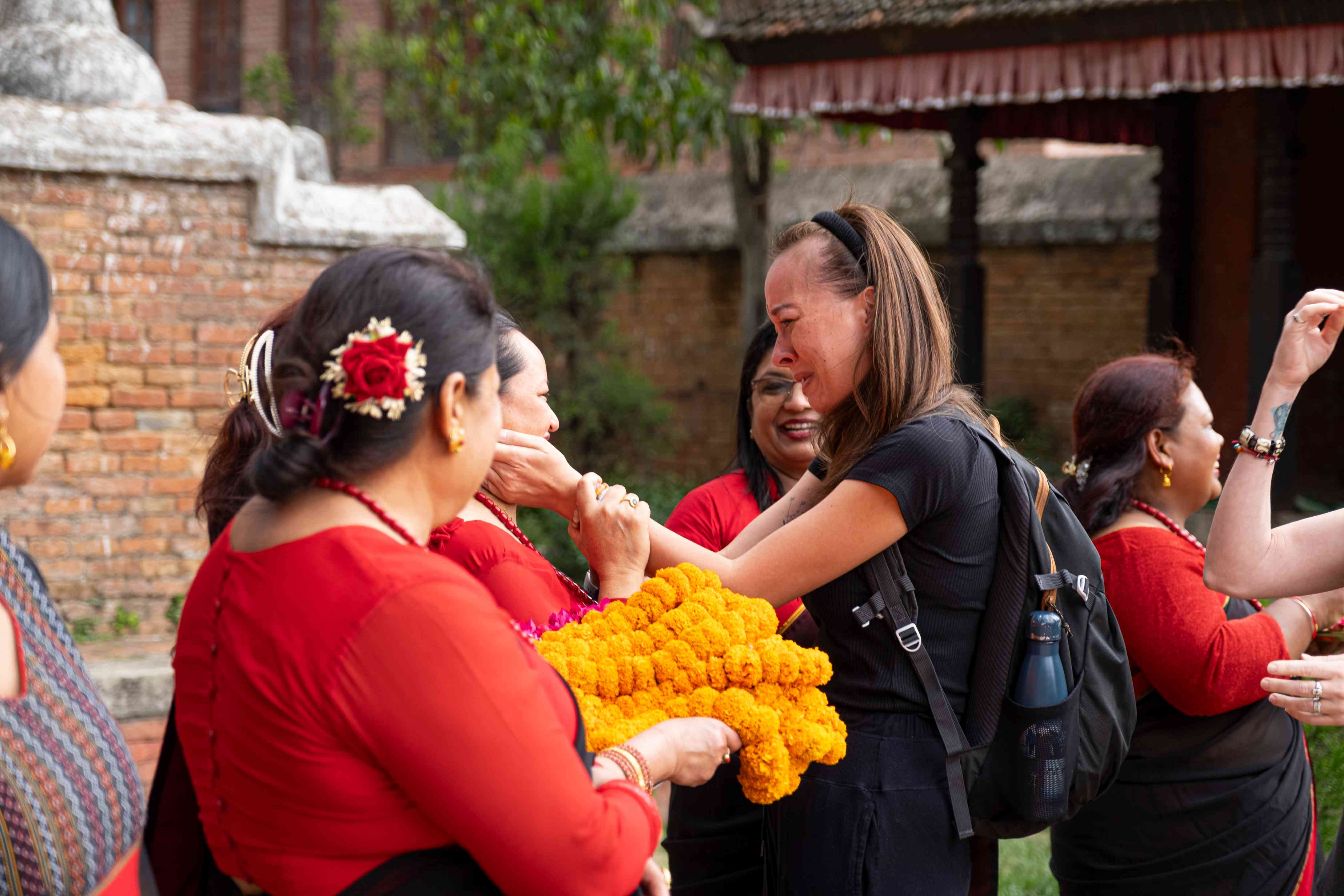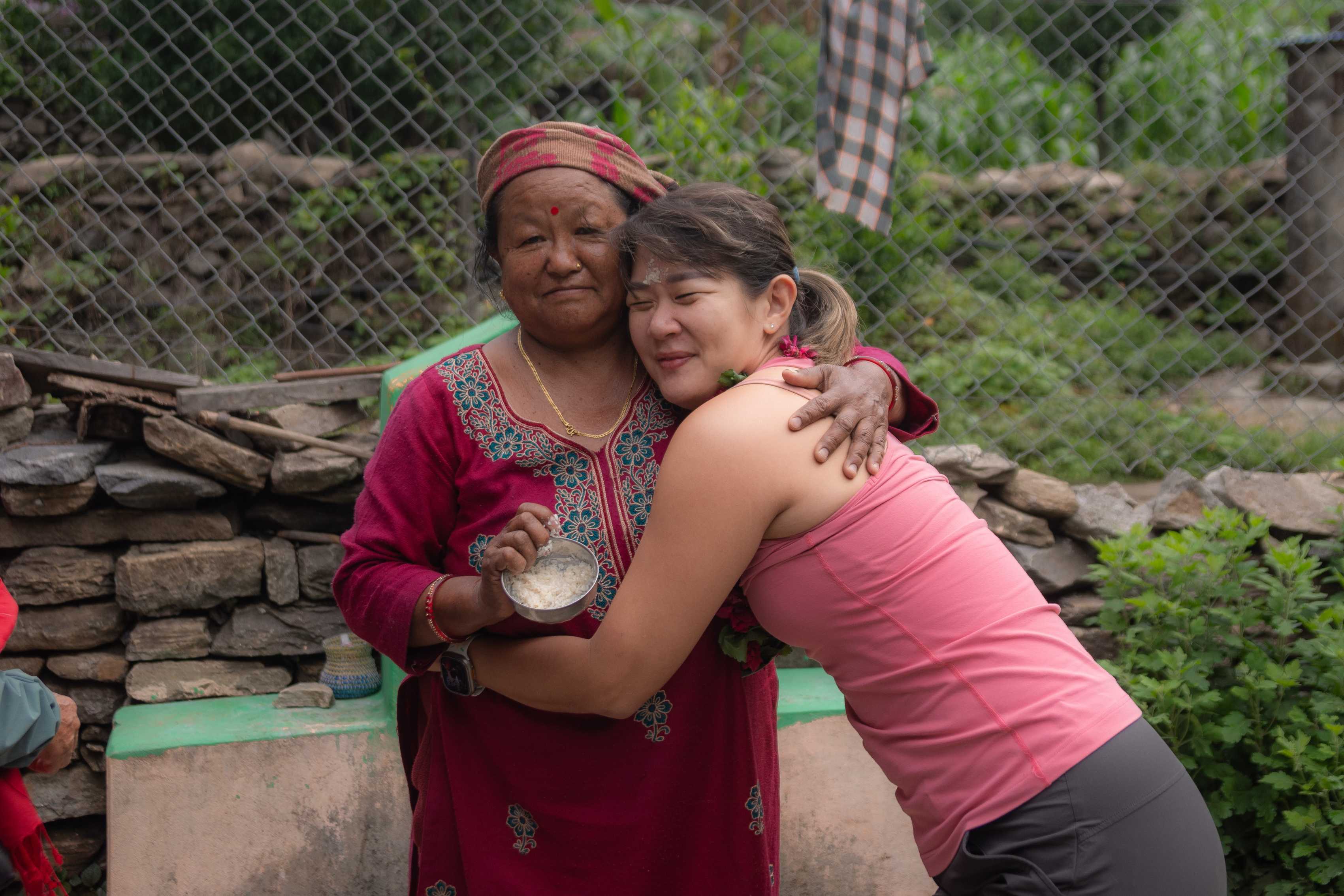Staying in the homes of local people rather than with other travellers can provide a much more authentic cultural experience. A family homestay can present a chance to experience everyday life in a new place. Here are some tips for staying in homestays. Hosts will invaiably cook you local meals, and you will have an insider’s invitation to events or places that other visitors would never see.
Tips for Staying in Homestays
1) Show appreciation
The first and foremost tip is to show appreciation. Though Nepalese people rarely say ‘thank you’ themselves, expressing your gratitude for your host family’s hospitality works wonders. The Nepali word for thank you, ‘Dhan-ya-baad,’ is very formal and is used for essential things. But if you just say ‘thank you’ in English, this is an excellent way to show your appreciation, as it is always understood and goes down very well.

‘Mitho Chha’ means ‘this is tasty’; every cook is always happy to hear this.
After you go home, try to contact your host family. At least send a thank you note, share photos, exchange cards, and try to maintain your friendship. Use Facebook and exchange email addresses. Contact has never been so easy.
2) Interaction with the locals
Relax and smile. Being at ease with your host family will help them relax, too. Staying in a homestay is not a budget alternative to a hotel, and you will enjoy the experience much more by getting to know your host and forming a relationship with them. Not only does this show respect, but you will find it much more rewarding and gain a much better understanding of their way of life.
Bringing photos from the home of friends and family, your house and anything of interest you think someone who has never been to your country might like to see is a great way to break the ice. You will invariably be treated to being shown photos of their family. Have fun teaching games, songs, dances, and other fun activities that you think might be interesting.
Most of all, spend time hanging out with your host family. Even if it can be very tempting to stick around with people from your home country, try to immerse yourself in the local culture instead. If you stay for a while, you will find that homesickness and culture shock will often pass much quicker without a fellow traveller from home to remind you of what you’re missing.
Try to prepare yourself before you go and do some research on the internet about cultural norms. You will find this can help a lot to lessen the culture shock. This includes things like gestures, appropriate clothing styles, and rituals. For example, in Nepal, try to avoid sitting with your feet sticking straight out and never point your feet at any shrine in the corner of the room.
3) Laugh and have fun

Don’t take yourself too seriously! If you mess up an introduction or by mistake, pour fiery hot chilli sauce into your soup, just have a good laugh about your mistake. Nothing breaks down cultural barriers better than laughing.
4) Show respect
Keep a respectful attitude, especially when interacting with older people. Pay attention to how your actions and attitudes impact family members. Try to be culturally appropriate at all times.
Dress appropriately. Though it may be okay to walk around at home in your underwear or shorts, in Nepal, it can make people feel very uncomfortable, especially if they are country people. In Nepal, showing your shoulders and above the knees is not very inappropriate. Avoid sleeveless tops and shorts.
5) Waste not, want not
Try to conserve as best as you can. In many places, water is in short supply. Sometimes, it has to be carried from a tap outside somewhere or, in limited supply, pumped into a tank somewhere. Often, village houses won’t have much running water, so showering and doing laundry every single day isn’t a necessity.
Many places don’t have hot showers. In these cases, water needs to be heated in a pan or kettle for a bucket shower.
6) Help out
In a family home, try to help out. If you offer to do your own dishes, you might find that your host will try to take them from you. But just take them to the tap and wash them yourself. Making your bed is easy; usually, you just need to fold the bedding or roll it up on the side of the bed. You can offer to do other dishes, help with the cooking, sweep the floor, or go to town and help get groceries. Try not to be lazy and clean up after yourself.
7) Giving gifts
You won’t want to arrive at your homestay empty-handed, but try to give a culturally appropriate gift. The best are those from home, like a local handicraft or regional delicacy. Try to get something useful or appropriate, but try not to be too extravagant, as this can lead to embarrassment, or worse still, to a long-term expectation that future guests will always bring expensive presents.
Avoid spoiling children with too many sweets (remembering dentists are in very short supply) or other things. This often encourages begging and the expectation that every foreigner who comes by will give them something. It is far better to provide parents with things to give their children or teachers pens that they can distribute to students.
8) If in doubt, just ask
Discuss ground rules within the first few days, and if in doubt, just ask! This is especially important if you stay for over one or two days. Even if you don’t share a common language, a simple question like how to bathe will be easy for them to answer.
Is there a time when you have to be back? Sometimes, the outside gate is locked, and it can be difficult to get in. When are meals served? Let the host family know your whereabouts, especially if you plan to be away for a while. While food that isn’t eaten is rarely wasted (there are always animals to eat leftovers), it isn’t very polite to skip meals without giving any warning. Check on things like how your host feels about you helping yourself from their kitchen, preparing your own meals or drinks, or if you can keep alcohol in the house. Don’t guess, ask!
9) Take things as they come
Don’t expect your host family to entertain you constantly. Try to relax and watch the daily pattern of life in the home and local community. Keep your mind open to things like squat toilets, bucket showers, having frogs and lizards to accompany you in the bathroom. Rooms at your host’s home may be smaller and less luxurious than in your home, but expect this.
10) Try new things
Try out things you might not do at home. How about cooking a meal for your host family or singing a song at the local festival? You could also make new foods even if you don’t think you will like it. You might be pleasantly surprised. Please give it a go!





